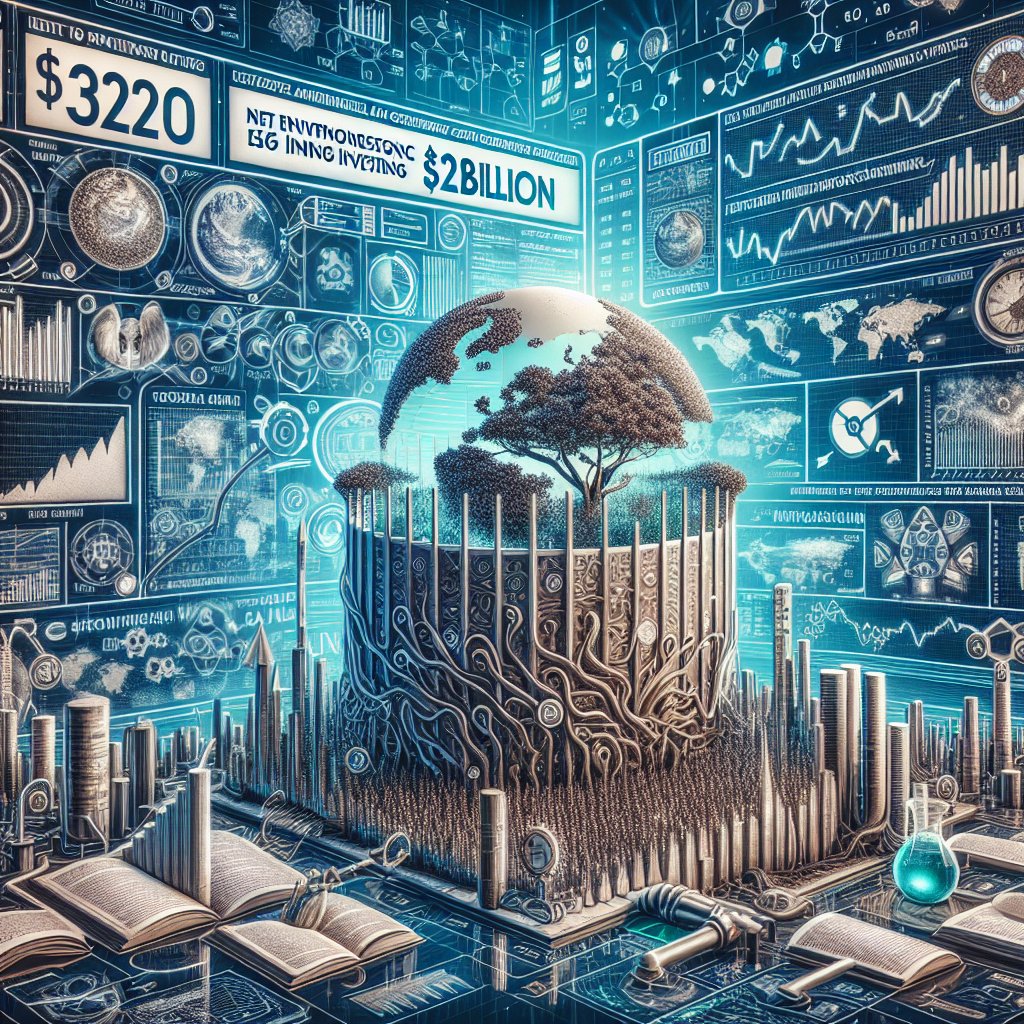Image created by AI
BlackRock's Success Story: Navigating the ESG Investment Landscape Amidst Challenges
Despite facing numerous challenges, including criticism from Republican circles, indifferent market returns, and varying levels of client enthusiasm in the United States, BlackRock has bolstered its position as the leading force in the realm of Environmental, Social, and Governance (ESG) investing. Proving resilient amid tumultuous times for the ESG sector, BlackRock has notably achieved consistent net ESG inflows each quarter for two years straight, a time which has tested the resilience of ESG investing like never before.
Since the onset of 2022, BlackRock’s ESG assets under management have surged by an impressive 53%, based on data compiled by Morningstar Direct. This growth is particularly noteworthy considering that the broader ESG fund market expanded by only about 8% during this same period. With around $320 billion in ESG funds, BlackRock's portfolio eclipses that of any other investment firm, both in the United States and globally.
BlackRock has opted not to comment directly on these figures. Morningstar's assessment hinges on an array of sustainability metrics, deliberately excluding categories such as money market, feeder, and funds-of-funds. BlackRock, on its part, claims to manage in excess of $800 billion through sustainable investing platforms and actively incorporates financially significant ESG data into its investment processes. This strategic approach has placed BlackRock at the forefront of ESG inflows over the last five years, posits Hortense Bioy, the global director of sustainability research at Morningstar.
Controversy regarding ESG investments has intensified within the United States, where Republican critics have lashed out against what they view as overly progressive and anti-capitalist investment practices. Larry Fink, BlackRock's CEO, has publicly rejected the "weaponized" ESG label amidst these contentious debates. Bioy anticipates such contentiousness will likely persist in the U.S. political sphere, influenced by the forthcoming election outcomes.
Bill Ackman's criticism further illustrates the resistance within the finance sector. Ackman has contended that ESG efforts have inflicted significant harm, undermining American energy independence and defense through misguided divestment from nuclear, fossil fuel, and defense sectors. However, it is essential to underscore that ESG encompasses a diverse range of investments, extending well beyond clean energy stocks to include technology giants like Microsoft Corp and Apple Inc.
In a market where active ESG strategies have struggled to demonstrate their worth, BlackRock has capitalized on passive ESG strategies. The asset manager experienced $5.6 billion in new inflows to passive ESG initiatives last quarter, offsetting active strategy outflows. While still dominant, actively managed ESG funds are ceding ground to their passive counterparts, a trend most evident even in Europe, the largest ESG market.
Amid this evolving landscape, active ESG funds have yet to justify their management fees, leading investors to gravitate towards passive, cost-effective alternatives like those offered by BlackRock. As BlackRock's ESG strategy increasingly gravitates towards passive options, with a remarkable 85% of their ESG products falling within this category, it propels the firm ahead of rivals, including Amundi SA, which seeks to increase its ESG ETF offerings.
BlackRock’s strategic positioning in ESG funds demonstrates adaptability in addressing market trends and client preferences, solidifying its global leadership in sustainable investing amidst a landscape marked by political debates and a complex macroeconomic environment.










